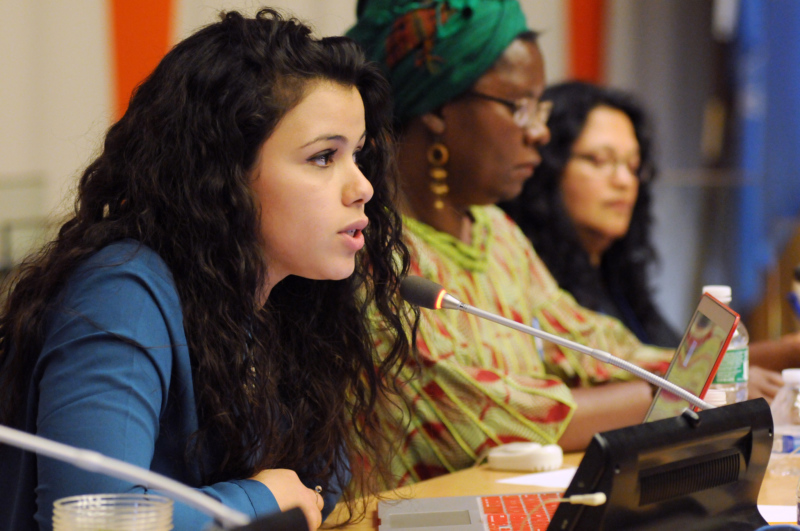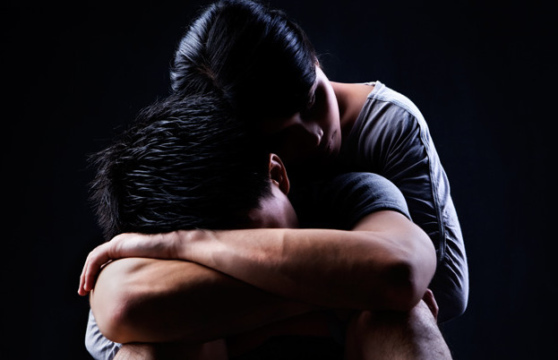What Roles are Women Playing in Mexico’s Drug War?
What roles are women playing in Mexico’s brutal drug trafficking war?
Q: For the second year in a row, people in Latin America are less likely to say they live in countries where women are treated with respect and dignity than people in any other region, according to a recent Gallup survey. A median of 35 percent of adults across 22 Latin American countries said women are treated with respect in their nations, about half as high as percentages in any other region, Gallup said, though the figure disguises wide differences between countries. How are women faring in Latin America, and what are the most important issues facing women in the region? Where has progress been made and how has that been achieved? What more needs to be done to promote gender equality?
A: Joan Caivano, deputy to the president and director of special projects at the Inter-American Dialogue: "In 2000, a Dialogue report concluded, 'the highest circles of power [in Latin America and the Caribbean] still remain largely male dominated.' Today, that is certainly not the case. Four countries have female heads of state. The number of women legislators has jumped 50 percent, and women's participation in national cabinets grew more than 150 percent. Key drivers of this progress are electoral quota laws. Having more women in political power has brought new legislation on issues affecting women--on electoral quotas, domestic violence, childcare and workplace discrimination. International conventions and efforts by women's movements have helped advance this progressive legal landscape. But gains are not consistent across countries. Areas of inequity remain on workplace discrimination, poverty and the persistent gap between law and practice. High on the unfinished agenda are domestic violence and reproductive rights. Latin America has one of the world's highest rates of violence against women. Factors driving violence include displacement by armed conflict, rapid urbanization, assaults on sex workers and human trafficking. Economic conditions force women to remain in abusive domestic arrangements or seek work in precarious and dangerous situations. Given Latin America's cultural conservatism and historical ties to the Catholic Church, the subject of abortion rights remains verboten. Although the region's maternal mortality related to illegal, unsafe abortions is the highest in the world, most political leaders stubbornly oppose decriminalizing the procedure--even in the case of rape, incest or to save the mother's life. The consequences of unsafe abortion disproportionately affect poor and rural women. Such injustice is a matter of human rights and equal opportunity. It is up to governments to commit resources and political will to law enforcement and public services in support of women's reproductive rights."
A: Jacqueline Pitanguy, executive director of Citizenship, Study, Research, Information and Action (CEPIA) and member of the National Council for the Rights of Women in Brazil: "There has been progress in the situation of women in the region. Constitutions have been reformed to guarantee equal rights, discriminatory laws have been abolished. Progress is unquestionable in relation to the participation of women in the labor market, where they increased their presence from 34.1 percent to 42 percent between 1990 and 2010. In Brazil, this rate was 48.9 percent in 2010. However, even though this increase has happened all over the region, there are significant variations between countries. While men still receive more than women for the same work, this difference is decreasing. Patriarchal values are, however, still persistent: while women went out of the home, to work, men did not enter the home to share family responsibilities, resulting in an overload of work, a barrier to women's progress in the labor market. Women advanced in education. In Brazil, they study more years than men. Between 18 and 24 years of age, 32 percent of women and 28 percent of men are still studying. However, in spite of the fact that this is the region with the most women holding the presidency, their participation in politics is very low (25 percent), particularly in Brazil (12 percent). The main barrier to the full advancement of women in the region is cultural: a combination of patriarchalism and a growing influence of conservative religions that deny sexual and reproductive rights and emphasize the domesticity of the role of women."
A: Maria de los Ángeles Fernández R., political analyst and founder of 'Hay Mujeres': "The subprime crisis of 2008 found Latin America on strong footing. Revenue from the 'commodities supercycle' permitted advances in combating poverty as well as an increase in its middle classes. This coincided with the rise to executive power of various women: Michelle Bachelet (Chile), Laura Chinchilla (Costa Rica), Cristina Fernández de Kirchner (Argentina) and Dilma Rousseff (Brazil). Their impact is undeniable but should not be exaggerated. Even for someone who has a stated commitment to gender equality, like Bachelet who also headed U.N. Women, this does not translate to automatic results. Just as it is not gender that defines the performance of a woman as the head of a country, it can be observed that gender equality policies that are promoted will have different effects depending on historical legacy, institutional capacity, degree of democracy and vulnerability to international pressure. That Latin Americans are less likely than people in other regions to say that women are treated with respect and dignity is indicative of how much remains to be done. Although life is better than 20 years ago, as recognized by the Economic Commission for Latin America and the Caribbean (ECLAC), it remains the most unequal region. When analyzing indicators of physical, economic and decision-making autonomy of women, ECLAC has shown advances. However, it also warns of areas such as labor where, despite the economic growth of the last decade, there persists a significant percent of women among the poor and indigent. Equally, it has called attention to the way in which conditional transfer programs, while effective at combatting poverty, have contributed to reinforcing the stereotype of women as mothers. In the period ahead, gender equality will experience a litmus test as some economies show signs of deceleration."
What roles are women playing in Mexico’s brutal drug trafficking war?
Would this be a more compassionate, more peaceful planet if more of it were ruled by women?
How do Latin America’s total abortion bans affect women’s health and human rights?
 Susan Markisz / UN Women / CC BY-NC-ND 2.0
Susan Markisz / UN Women / CC BY-NC-ND 2.0

